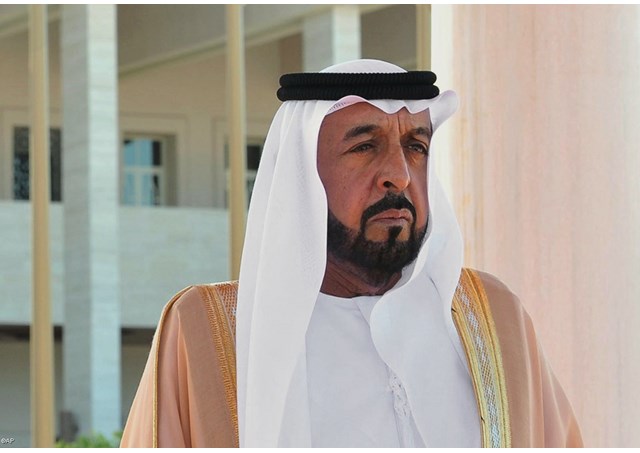
UAE Passes Law To Criminalize Religious Discrimination

(Vatican Radio) The United Arab Emirates on Monday announced new legislation imposing harsh sentences including the death penalty for crimes related to religious hatred. The royal decree by President Sheikh Khalifa bin Zayed al-Nahyan, was distributed by the official WAM news agency, criminalises any act that stirs religious hatred and also prohibits discrimination "on the basis of religion, caste, creed, doctrine, race, colour or ethnic origin".
The law also prohibits giving or receiving financial support for such activities that criminalise and stoke religious hatred and/or which insult religion through any form of expression, be it speech or the written word, books, pamphlets or via online media. The law also includes provisions for punishing anyone for terming other religious groups or individuals as infidels, or unbelievers.
The new law intends to counter the practice of some Islamic extremists of classifying other groups and individuals as infidels. Those labeling people following any other religion as infidels may face the capital punishment if the discrimination leads to murder.
“The law prohibits any entity or group established specifically to provoke religious hatred and recommends stringent punishments for groups or supporters of any organizations or individuals that are associated with hate crimes,” the Emirates News Agency WAM reported. “It also bars any kind of events such as conferences and meetings within the UAE organized with the sole purpose of sowing seeds of discrimination, discord or hatred against individuals or groups on the basis of faith, origin or race.”
Offenders risk up to 10 years in prison or the death penalty if convicted of "takfirism" or Sunni Muslim extremism. Proponents of such ideology adopted by Al-Qaeda and other radical Islamist groups describe as infidels non-Muslims as well as Muslims who do not share their beliefs.
Rulers, religious leaders and legal experts in the Gulf Nation welcomed the new law against hate crime and religious or racial discrimination.
Sheikh Mohammed bin Rashid, Vice President and Ruler of Dubai, said the law “guarantees the freedom of individuals from religious intolerance … and underpins the UAE’s policy of inclusiveness”.
It also showed the wisdom of the leadership in a country that was sending a message to spread peace and a culture of non-discrimination, said Sheikha Lubna Al Qasimi, Minister of International Cooperation and Development.
“Today, while we see a phenomenon wherein many societies are marred by division, spread of conflicts, fighting and destruction of homelands due to outbreaks of racial or religious discrimination, the UAE has taken measures and decisions which safeguard against all negative factors that can lead to in-fighting and discrimination,” said Sheikha Lubna, who is also head of the Committee for the Coordination of Humanitarian Foreign Aid.
Dr Mohammed Matar Al Kaabi, director general of the General Authority of Islamic Affairs and Endowments, said hatred spawned “a culture of isolation that leads to racism, violence and disharmony between factions of society and discord between nations, cultures and civilisations. This is what no sane person wants.”
“No small faction of society who choose hate as a doctrine has a right to ruin humans’ innate will to coexist, cooperate and come together,” Mr Al Kaabi said.
Analysts said the new law would also combat the threat of global terror. “The law appears to be addressing the current lack of tolerance in extremist organisations such as Daesh,” said Dr Richard Burchill, director of research and engagement at Trends, Research and Advisory in Abu Dhabi.
“A new law alone will not resolve the problems of discrimination, extremism and hate crimes. But laws of this nature are a necessary part of government and social responses to intolerance and discrimination being used by others to further their extreme views,” he said.
“The focus of the new law is on hate crimes so it needs to be more limited in scope to ensure effective prosecution. Women, children and others are still protected by the law when they are a victim of a crime as a direct result of their religion, caste, creed, doctrine, race, colour or ethnic origin. Therefore the law does appear to have appropriate coverage and scope.”
Dr Farouq Hamada, the religious adviser at the Crown Prince Court in Abu Dhabi, said the law came at the perfect time as certain groups had a misconstrued violent concept of religion.
“There’s a desperate need for this law at this time because certain individuals and groups have crossed a line with ideologies that have no relation to our religion at all. They’re smearing the religion,” said Dr Hamada.
“Islam prohibits us from insulting other religions. This is important for diversity and inclusion. The law also addresses intra-Muslim conflicts of groups ostracising people and calling them infidels. Doing so is a major offence in Islam and cannot be taken lightly.
The UAE, an oil-exporting confederation of seven Emirates ruled by hereditary dynasties and bordering Saudi Arabia and Oman, is worried about political Islam, which appeals to religious conservatives while challenging its lack of democratic rule.
The UAE is also concerned about efforts by Sunni extremists to stoke sectarian tensions in the Gulf with recent blasts at Shiite mosques in Saudi Arabia and Kuwait.
Militant violence is rare in the UAE, but ISIS has urged Muslims in Gulf countries to target Western expatriates in retaliation for attacks against it. While virtually all UAE citizens are Muslims, most of them are Sunni. The country is also home to hundreds of thousands of non-Muslim expatriates and is a popular destination for foreign tourists.
(Daily star; Reuter; AsiaNews; IBT)
| All the contents on this site are copyrighted ©. |


